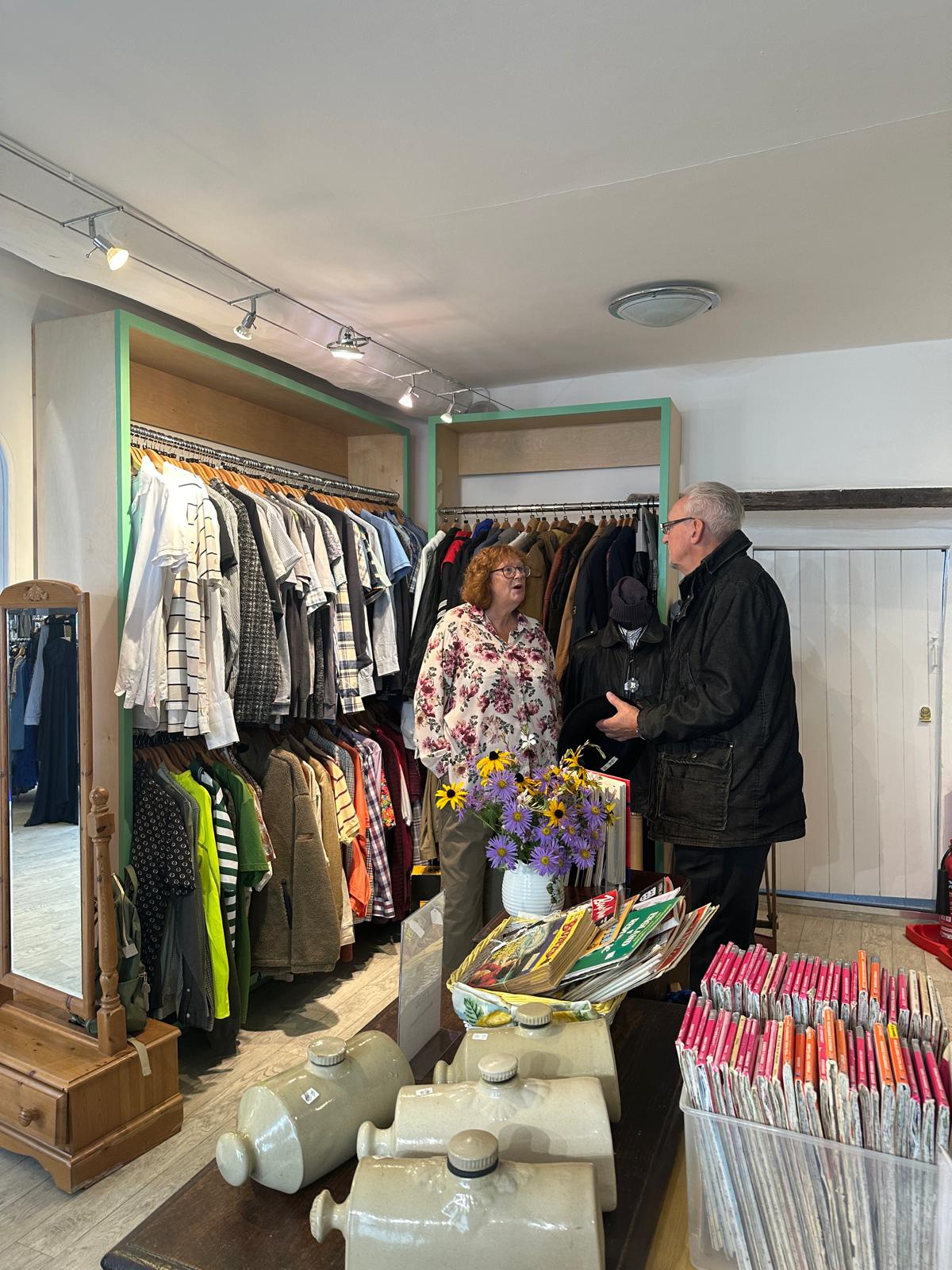
Why a Chat in a Charity Shop Could Be a Lifeline
You pop into your local Tapping House charity shop for a browse, maybe hoping to find a bargain. The volunteer behind the till looks up with a smile and says, “How’s your day going?”
You exchange a few words, perhaps about the weather, your plans, or what you’re thinking of having for dinner. That brief chat might seem ordinary, but for someone, it could be a lifeline.
Small Talk That Isn’t So Small
It’s easy to dismiss small talk as trivial, but for someone who lives alone or has lost a partner, those few minutes of friendly conversation might be the only social contact they have that day. That moment of being seen, heard, and welcomed can make a real difference.
Loneliness is one of the biggest health challenges in our communities. We live in a beautiful but rural part of the country, with long distances, patchy buses, and more people living alone. Around one in five adults in Norfolk say they feel lonely some or most of the time, roughly 188,000 people. And nearly one in three people over 75 admit they often feel lonely. These numbers aren’t just statistics; they’re stories of empty chairs, quiet kitchens, and days without a friendly voice.
National reports confirm this: older people in rural or coastal areas often face poorer health and fewer opportunities to connect. Loneliness and isolation are now recognised as major threats to healthy ageing, as harmful as smoking 15 cigarettes a day.
The good news? Connection helps. And compassionate communities like ours are proving that every little chat counts.
What is a Compassionate Community
At Tapping House, we support people through times of grief and loss. While professional help is available when needed, we recognise that sometimes what makes the difference is the support of the people around you.
The idea behind compassionate communities is simple: everyone has a role to play in caring for one another. That care happens over cups of tea, across shop counters, and through everyday conversations.
Many people want to offer support but don’t know what to say — or worry they might make things worse, and so stay silent. Through our free Compassionate Friends Skills Workshops, we help people gain confidence in having supportive conversations. The next workshop is on 12th January 2026, 9:30 am – 12:30 pm via Zoom.
The beauty of this approach is that it’s not about “fixing” loneliness with programmes or leaflets. It’s about being present, naturally and genuinely. As one supporter put it: “We can’t take away someone’s grief or their pain, but we can make sure they don’t go through it alone.”
Tapping House Charity Shops: Everyday Compassion in Action
Our charity shops are a wonderful example of compassionate communities in practice. People come in to browse, donate, or sometimes just to talk. Maybe they’ve recently lost someone and are rebuilding their social life. Maybe they’re new to the area and feeling a bit adrift. Sometimes, regular visitors drop in for company as much as for clothes.
A volunteer recently said, “People don’t just come in to buy something, they come in to talk. Sometimes we’re the only people they’ll see that week.”
This is compassionate community in action: small, human moments that make someone feel seen, heard, and valued.
The Ripple Effect of Compassion
What’s beautiful about these conversations is how they ripple outwards. When someone feels less alone, that one chat in a charity shop can be the start of something bigger, whether it leads them to join a group, volunteer, or simply smile at others more often.
Hospice UK calls this “ordinary people doing ordinary things that make an extraordinary difference.” Compassion doesn’t have to be grand — it just has to be genuine.
So next time you’re in a Tapping House shop, take a moment to chat. Ask how the volunteer’s day is going. Compliment that cardigan on display. You never know what that small act might mean to someone or how much it might brighten your own day, too.
If you’d like to learn more about having supportive conversations, our free Compassionate Friends Skills Workshops are a great place to start.
